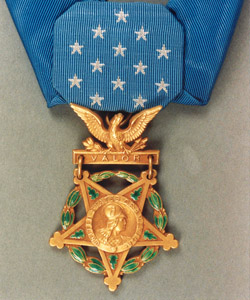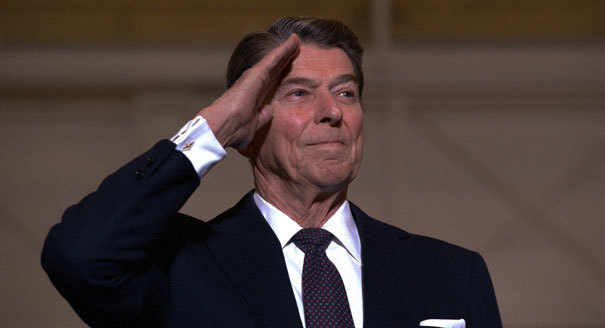Herein, in honor of Memorial Day, we will highlight some winners of the Congressional Medal of Honor, focusing on each of the major conflicts of the past 100+ years, as these men gave their lives, while in service to their Nation.
World War I
Sgt. Thomas Hall, U.S. Army
Having overcome two machine-gun nests under his skillful leadership, Sgt. Hall’s platoon was stopped 800 yards from its final objective by machine-gun fire of particular intensity. Ordering his men to take cover in a sunken road, he advanced alone on the enemy machine-gun post and killed five members of the crew with his bayonet and thereby made possible the further advance of the line. While attacking another machine-gun nest later in the day this gallant soldier was mortally wounded
World War II
Maj. Henry Courtney, Jr, USMC-Reserves
For conspicuous gallantry and intrepidity at the risk of his life above and beyond the call of duty as executive officer of the 2d Battalion, 22d Marines, 6th Marine Division, in action against enemy Japanese forces on Okinawa Shima, in the Ryukyu Islands, 14 and 15 May 1945. Ordered to hold for the night in static defense behind Sugar Loaf Hill after leading the forward elements of his command in a prolonged firefight, Maj. Courtney weighed the effect of a hostile night counterattack against the tactical value of an immediate marine assault, resolved to initiate the assault, and promptly obtained permission to advance and seize the forward slope of the hill. Quickly explaining the situation to his small remaining force, he declared his personal intention of moving forward and then proceeded on his way, boldly blasting nearby cave positions and neutralizing enemy guns as he went. Inspired by his courage, every man followed him without hesitation, and together the intrepid marines braved a terrific concentration of Japanese gunfire to skirt the hill on the right and reach the reverse slope. Temporarily halting, Maj. Courtney sent guides to the rear for more ammunition and possible replacements. Subsequently reinforced by 26 men and an LVT load of grenades, he determined to storm the crest of the hill and crush any planned counterattack before it could gain sufficient momentum to effect a breakthrough. Leading his men by example rather than by command, he pushed ahead with unrelenting aggressiveness, hurling grenades into cave openings on the slope with devastating effect. Upon reaching the crest and observing large numbers of Japanese forming for action less than 100 yards away, he instantly attacked, waged a furious battle, and succeeded in killing many of the enemy and in forcing the remainder to take cover in the caves. Determined to hold, he ordered his men to dig in and, coolly disregarding the continuous hail of flying enemy shrapnel, to rally his weary troops, tirelessly aided casualties and assigned his men to more advantageous positions. Although instantly killed by a hostile mortar burst while moving among his men, Maj. Courtney, by his astute military acumen, indomitable leadership, and decisive action in the face of overwhelming odds, had contributed essentially to the success of the Okinawa campaign. His great personal valor throughout sustained and enhanced the highest traditions of the U.S. Naval Service. He gallantly gave his life for his country.
Korean War
Hospital Corpsman John Kilmer, U.S. Navy
For conspicuous gallantry and intrepidity at the risk of his life above and beyond the call of duty in action against enemy aggressor forces. With his company engaged in defending a vitally important hill position well forward of the main line of resistance during an assault by large concentrations of hostile troops, HC Kilmer repeatedly braved intense enemy mortar, artillery, and sniper fire to move from one position to another, administering aid to the wounded and expediting their evacuation. Painfully wounded himself when struck by mortar fragments while moving to the aid of a casualty, he persisted in his efforts and inched his way to the side of the stricken marine through a hail of enemy shells falling around him. Undaunted by the devastating hostile fire, he skillfully administered first aid to his comrade and, as another mounting barrage of enemy fire shattered the immediate area, unhesitatingly shielded the wounded man with his body. Mortally wounded by flying shrapnel while carrying out this heroic action, HC Kilmer, by his great personal valor and gallant spirit of self-sacirfice in saving the life of a comrade, served to inspire all who observed him. His unyielding devotion to duty in the face of heavy odds reflects the highest credit upon himself and enhances the finest traditions of the U.S. Naval Service. He gallantly gave his life for another.
Vietnam War
AFC William Pitsenbarger, USAF
For conspicuous gallantry and intrepidity at the risk of his life above and beyond the call of duty. Airman First Class Pitsenbarger distinguished himself by extreme valor on 11 April 1966 near Cam My, Republic of Vietnam, while assigned as a pararescue Crew Member, Detachment 6, 38th Aerospace Rescue and Recovery Squadron. On that date, Airman Pitsenbarger was aboard a rescue helicopter responding to a call for evacuation of casualties incurred in an ongoing firefight between elements of the United States Army’s 1st Infantry Division and a sizeable enemy force approximately 35 mile east of Saigon. With complete disregard for personal safety, Airman Pitsenbarger volunteered to ride a hoist more than one hundred feet through the jungle, to the ground. On the ground, he organized and coordinated rescue efforts, cared for the wounded , prepared casualties for evacuation, and insured that the recovery operation continued in a smooth and orderly fashion. Through his personal efforts, the evacuation of the wounded was greatly expedited. As each of the nine casualties evacuated that day was recovered, Airman Pitsenbarger refused evacuation in order to get more wounded soldiers to safety. After several pick-ups, one of the two rescue helicopters involved in the evacuation was struck by heavy enemy ground fire and was forced to leave the scene for an emergency landing. Airman Pitsenbarger stayed behind on the ground to perform medical duties. Shortly thereafter, the area came under sniper and mortar fire. During a subsequent attempt to evacuate the site, American forces came under heavy assault by a large Viet Cong force. When the enemy launched the assault, the evacuation was called off and Airman Pitsenbarger took up arms with the besieged infantrymen. He courageously resisted the enemy, braving intense gunfire to gather and distribute vital ammunition to American defenders. As the battle raged on, he repeatedly exposed himself to enemy fire to care for the wounded, pulled them out of the line of fire, and return fire whenever he could, during which time he was wounded three times. Despite his wounds, he valiantly fought on, Simultaneously treating as many wounded as possible. In the vicious fighting that followed, the American forces suffered 80 percent casaulties as their perimeter was breached, and Airman Pitsenbarger was fatally wounded. Airman Pitsenbargerexposed himself to almost certain death by staying on the ground, and perished while saving the lives of wounded infantrymen. His bravery and determination exemplify the highest professional standards and traditions of the military service and reflect great credit upon himself, his unit, and the United States Air Force.
War on Terror (Iraq)
For conspicuous gallantry and intrepidity at the risk of his life above and beyond the call of duty while serving as a Rifle Squad Leader, 4th Platoon, Company K, Third Battalion, Seventh Marines (Reinforced), Regimental Combat Team 7, First Marine Division (Reinforced), on 14 April 2004. Corporal Dunham’s squad was conducting a reconnaissance mission in the town of Karabilah, Iraq, when they heard rocket-propelled grenade and small arms fire erupt approximately two kilometers to the west. Corporal Dunham led his Combined Anti-Armor Team towards the engagement to provide fire support to their Battalion Commander’s convoy, which had been ambushed as it was traveling to Camp Husaybah. As Corporal Dunham and his Marines advanced, they quickly began to receive enemy fire. Corporal Dunham ordered his squad to dismount their vehicles and led one of his fire teams on foot several blocks south of the ambushed convoy. Discovering seven Iraqi vehicles in a column attempting to depart, Corporal Dunham and his team stopped the vehicles to search them for weapons. As they approached the vehicles, an insurgent leaped out and attacked Corporal Dunham. Corporal Dunham wrestled the insurgent to the ground and in the ensuing struggle saw the insurgent release a grenade. Corporal Dunham immediately alerted his fellow Marines to the threat. Aware of the imminent danger and without hesitation, Corporal Dunham covered the grenade with his helmet and body, bearing the brunt of the explosion and shielding his Marines from the blast. In an ultimate and selfless act of bravery in which he was mortally wounded, he saved the lives of at least two fellow Marines. By his undaunted courage, intrepid fighting spirit, and unwavering devotion to duty, Corporal Dunham gallantly gave his life for his country, thereby reflecting great credit upon himself and upholding the highest traditions of the Marine Corps and the United States Naval Service.
War on Terror (Afghanistan)
SSgt. Jared Monti, U.S. Army
Staff Sergeant Jared C. Monti distinguished himself by acts of gallantry and intrepidity above and beyond the call of duty while serving as a team leader with Headquarters and Headquarters Troop, 3d Squadron, 71st Cavalry Regiment, 3d Brigade Combat Team, 10th Mountain Division, in connection with combat operations against an armed enemy in Nuristan Province, Afghanistan, on June 21, 2006. While Staff Sergeant Monti was leading a mission aimed at gathering intelligence and directing fire against the enemy, his 16-man patrol was attacked by as many as 50 enemy fighters. On the verge of being overrun, Staff Sergeant Monti quickly directed his men to set up a defensive position behind a rock formation. He then called for indirect fire support, accurately targeting the rounds upon the enemy who had closed to within 50 meters of his position. While still directing fire, Staff Sergeant Monti personally engaged the enemy with his rifle and a grenade, successfully disrupting an attempt to flank his patrol. Staff Sergeant Monti then realized that one of his Soldiers was lying wounded in the open ground between the advancing enemy and the patrol’s position. With complete disregard for his own safety, Staff Sergeant Monti twice attempted to move from behind the cover of the rocks into the face of relentless enemy fire to rescue his fallen comrade. Determined not to leave his Soldier, Staff Sergeant Monti made a third attempt to cross open terrain through intense enemy fire. On this final attempt, he was mortally wounded, sacrificing his own life in an effort to save his fellow Soldier. Staff Sergeant Monti’s selfless acts of heroism inspired his patrol to fight off the larger enemy force. Staff Sergeant Monti’s immeasurable courage and uncommon valor are in keeping with the highest traditions of military service and reflect great credit upon himself, Headquarters and Headquarters Troop, 3rd Squadron, 71st Cavalry Regiment, 3rd Brigade Combat Team, 10th Mountain Division, and the United States Army.








